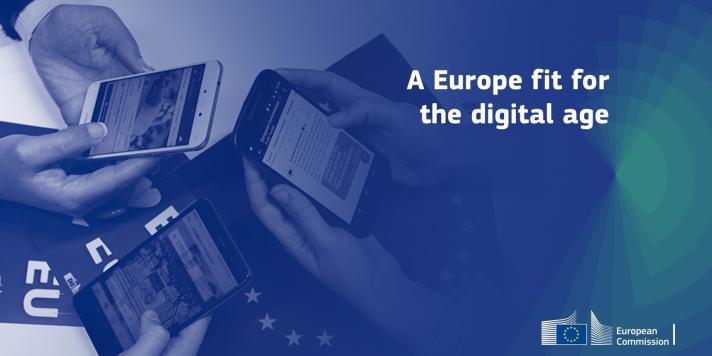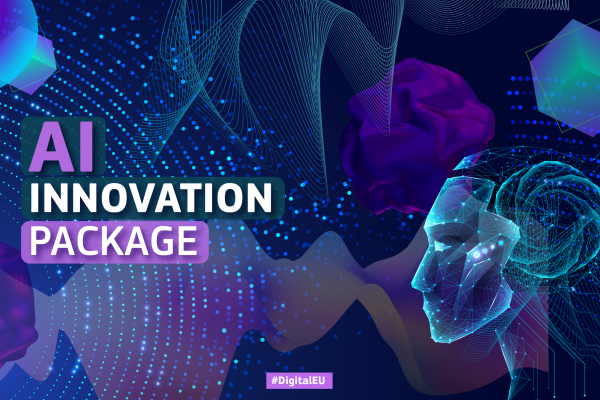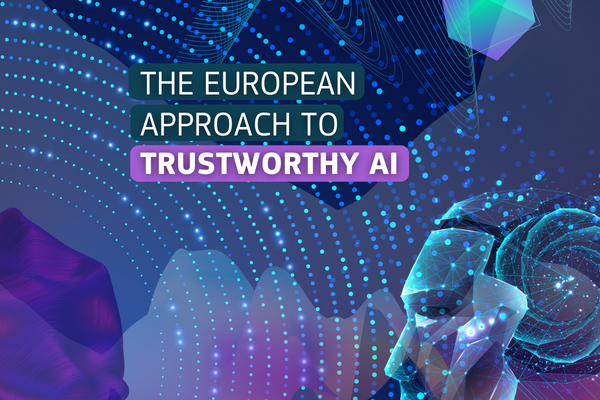
Digital technology has become such an integral part of everyday life that it’s hard to imagine a world without the internet, smartphones, or GPS navigation.
It has transformed how we live, work and learn making it easier to connect with people, boosting productivity, and granting access to vast academic and research resources.
Information and communication technologies (ICTs) are also improving healthcare while breakthroughs in Artificial Intelligence (AI) promise to aid in the global fights against climate change, poverty, and hunger.
As digital technology evolves, faster and more reliable networks present exciting possibilities, but vulnerabilities and misuse have also emerged.
Dangerous threats such as fake news on social media, unethical hacking, online harassment, e-banking scams, and data theft have to be curtailed, and children must be protected from inappropriate content.
Misinformation and disinformation have distorted facts regarding elections, Russia’s illegal invasion of Ukraine, and the Israeli–Palestinian conflict. Meanwhile, experts are warning that the rapid growth of AI could pose risks if left unchecked.
Society is still adapting to this new digital era, and the European Commission’s Digital Decade Policy Programme aims to create a safe, sustainable and successful digital future for all businesses and citizens by 2030.
Digital Decade
The Digital Decade sets clear targets for Europe’s digital transformation and it is important for Ireland as many global tech companies have their headquarters here. Robust digital policies will also help Irish businesses to create skilled jobs and boost the economy.
Digital Decade targets for 2030 include:
- At least 80% of all adults should have basic digital skills, and there should be 20 million employed ICT specialists in the EU, with more women in these roles.
- All EU households should have gigabit connectivity and all populated areas should be covered by 5G.
- Three out of four companies should use cloud computing services, big data and Artificial Intelligence, and more than 90% of SMEs should have at least a basic level of digital intensity.
- All key public services should be available online and all citizens should have access to their e-medical records.

Reaching our digital targets and building a true digital single market would be a gamechanger for our productivity and competitiveness.
President Ursula von der Leyen (2024)
To help achieve these objectives, EU Member States are committed to dedicate at least 20% of funds allocated through their Recovery and Resilience Plans to digital priorities.
Ireland’s National Digital Strategy, ‘Harnessing Digital – The Digital Ireland Framework’ outlines a roadmap towards achieving the country’s digital targets. The Digital Transition Fund has been established to help Irish businesses, particularly SMEs, on their digitalisation journey.
Europe's Digital Decade – Questions and Answers
Digital Decade Progress
Efforts to achieve digital targets are ongoing and positive strides have been made in areas like broadband infrastructure and digital literacy.
However, the 2024 State of the Digital Decade report raises concerns about performance in the digital transformation, and warns that actions are needed to accelerate the transition.
The EU is lagging in several areas, including digital skills, internet access, AI, and semiconductors, with slower-than-expected progress on some goals.
When it comes to Ireland, the report highlights the country’s positive contribution towards achieving Digital Decade objectives, particularly in broadband infrastructure and digital literacy. It recommends that Ireland should develop a coherent approach to combining digital and green goals, use digital tools to measure and reduce carbon emissions, and do more to promote energy and material efficiency, especially in data centres.
Other recommendations for Ireland include:
- Encouraging more businesses to adopt cloud computing, AI, and big data.
- investing in cybersecurity.
- Expanding digital skills training while continuing to address the gender gap among ICT specialists.
- Implementing an e-ID scheme.
- Improving access to e-health services.
Digital markets and services
The European Commission’s Digital Markets Act (DMA) ensures fair competition in digital markets and holds large online platforms like search engines, app stores, and messaging services accountable.
The Commission designates large and dominant online services as ‘gatekeepers’ if they control access to other online services. Seven gatekeepers have been designated so far, and the Commission has opened a number of investigations for non-compliance.

The DMA imposes stringent requirements on gatekeepers forcing them to adopt behaviours that promote openness and discourage unfair practices.
Similarly, the Digital Services Act (DSA) regulates services like online marketplaces, social networks, and travel platforms, and it includes measures to protect children from harmful content. Its core function is to ensure that what is illegal offline, is illegal online.
Under the DSA, companies can be designated as Very Large Online Platforms (VLOPs), making them subject to regulations and monitoring for issues like illegal content and user protection. Over 20 platforms and search engines have been designated as VLOPs, including a number of adult content websites.
The Commission has demanded transparency or content moderation actions from some VLOPs and sent requests to adult content sites relating to issues including protection of minors, gender-based violence and content moderation practices.
Together, the DMA and the DSA provide important benefits for EU consumers and business including:
- A more competitive digital marketplace, potentially leading to lower prices and a broader range of choices.
- Easier ways to report harmful or illegal content, goods or services online.
- Stricter age verification to restrict minors’ access to unsuitable content.
- The ability to contest content removal from digital platforms.
- The ability to easily select default digital technologies such as browsers, app stores and software.
- A ban on advertising targeting children.
- Simplified data transfer when switching between digital devices, services, or apps.
- The ability for app developers to provide apps through alternative channels beyond official app stores.
There are serious consequences for non-compliance with the DMA or DSA, including fines that could reach hundreds of millions of euro and the possibility of an EU-wide ban.
Ireland's media regulator, Coimisiún na Meán, is responsible for the implementation and enforcement of the DSA in Ireland and helps monitor the behaviour of gatekeepers. In October 2024, Coimisiún na Meán introduced Ireland's Online Safety Code, which protects children from harmful online material, including cyberbullying and content that promotes eating disorders and self-harm. This legally binding code applies to video-sharing platforms headquartered in Ireland and fulfils Ireland’s obligations under the EU Audiovisual Media Services Directive.
Ireland’s Competition and Consumer Protection Commission has specific responsibility for online marketplaces.
Artificial Intelligence
The EU aims to create a world-class hub for Artificial intelligence (AI) and ensure it is human-centric and trustworthy.
The EU Artificial Intelligence (AI) Act took effect in August 2024 and will be fully enforced gradually by August 2026. The Act is designed to ensure that AI systems used in the EU are safe, transparent, ethical, unbiased and under human control. It takes a risk-based approach using a classifying system that bans high-risk AI applications and mitigates risks like bias and discrimination.
The Act applies whenever an AI-based system is used in the EU, regardless of where the operator is based. Over 100 companies covering various sectors have signed up to the voluntary EU AI Pact, agreeing to self-regulate and adhere to the AI Act’s principles before its full implementation.

The Commission’s AI Board, which includes representatives from each EU Member State, is based at the European AI Office in Brussels and it plays a crucial role in AI governance,
Other key aspects of the Commission’s approach to AI include:
- The Commission appointed a High-Level Expert Group to develop guidelines for creating trustworthy AI with human oversight, accountability, and privacy safeguards.
- The AI Innovation Package grants European AI start-ups and SMEs access to high-performance supercomputers, accelerating research in areas such as climate change, infrastructure reconstruction, and e-Health.
- The AI Liability Directive simplifies the process for victims to claim compensation for harm caused by malfunctioning AI systems.
- The Commission is investing heavily in AI education and skills development to ensure Europe's competitiveness in the global AI landscape. The European AI Alliance partners with industry, academia, and governments to address the demand for AI specialists.
In Ireland, the Centre for Applied AI (CeADAR) serves as the European Digital Innovation Hub for AI, bridging academic research and business, and supporting Irish companies in adopting and expanding AI.
Digital actions
The Commission has launched several actions that have improved the digital landscape for European citizens and businesses.
- Since 2017, phone calls, SMS messaging, and mobile internet usage have been covered by your mobile subscription, wherever you travel in the EU.
- Unjustified geographically based restrictions – or geoblocking - that undermine online shopping and cross-border sales ended in 2018.
- Data protection across the EU has been strengthened by the General Data Protection Regulation (GDPR), which gives individuals the right to request a copy of any personal data held in digital or physical format.
- Companies and organisations must adhere to strict data processing regulations and citizens have the right to have their data erased swiftly.
- The European Chips Act aims to double the EU’s global market share of semiconductors to 20% by 2030, addressing global shortages that have led to price increases and waiting lists for products like cars, smart devices, medical equipment, and domestic appliances. The Act has triggered public and private investment plans worth over €115 billion so far.
- The Cyber Resilience Act will require all digital products, such as baby monitors, smartwatches, and software, to meet mandatory cybersecurity requirements throughout their lifecycle.
- USB Type-C will soon become the universal charging standard for all new electronic products, meaning consumers will no longer need multiple charging cables for different devices.
- The Digital Identity Wallet will allow Europeans to access a range of government and private services easily. It will protect personal data and function across all Member States from the end of 2026.
EU Cyber Resilience Act - Questions & Answers
News Digital Agenda
Digital Agenda news

- News article
The European Commission has launched a package of measures to support European startups and SMEs in the development of trustworthy Artificial Intelligence (AI) that respects EU values and rules.
- 1 min read

- News article
The European Commission has welcomed the political agreement reached between the European Parliament and the Council on the Artificial Intelligence Act (AI Act), proposed by the Commission in April 2021.
- 5 min read

- News article
The European Commission services have signed administrative arrangements with the media regulators of France and Ireland to support its supervisory and enforcement powers under the Digital Services Act.
- 1 min read
- News article
The European Commission has designated, for the first time, six gatekeepers - Alphabet, Amazon, Apple, ByteDance, Meta, Microsoft - under the Digital Markets Act (DMA).
- 4 min read
